#Electric Car Manufacturers
Text
Electric Car Manufacturer
Electric cars are vehicles that use electric motors instead of internal combustion engines. They are powered by batteries, fuel cells, or other sources of electricity. Electric cars offer many benefits, such as lower emissions, reduced noise, and lower operating costs. However, they also face some challenges, such as limited range, high initial cost, and lack of charging infrastructure.
Electric vehicle (EV): A vehicle that uses one or more electric motors for propulsion.
Battery electric vehicle (BEV): An EV that uses only batteries as the source of electricity.
Plug-in hybrid electric vehicle (PHEV): An EV that uses both batteries and an internal combustion engine. The batteries can be recharged by plugging into an external power source or by the engine.
Hybrid electric vehicle (HEV): An EV that uses both batteries and an internal combustion engine. The batteries are recharged by the engine or by regenerative braking.
Fuel cell electric vehicle (FCEV): An EV that uses a fuel cell to convert hydrogen and oxygen into electricity.
Electric vehicle charging station: A device that provides electricity to charge the batteries of an EV.
Electric vehicle range: The distance that an EV can travel on a single charge of its batteries.
Electric vehicle efficiency: The ratio of the energy output of an EV to the energy input from the power source.
Electric vehicle emissions: The amount of greenhouse gases and air pollutants that are released by an EV or by the power source that charges it.
Electric vehicle incentives: The policies and programs that encourage the adoption of EVs, such as tax credits, rebates, subsidies, or exemptions.
Unveiling the Power Players: A Look at Major Electric Car Manufacturers
The electric vehicle (EV) revolution is buzzing, and at its heart lie the innovative minds and tireless efforts of dedicated manufacturers. From established giants to rising stars, each player brings unique strengths and visions to the table, propelling the world towards a cleaner, greener future.
Let's delve into the world of major electric car manufacturers through the lens of https://internationalelectriccar.com/electric-cars/manufacturer/:
Tesla: The Elon Musk-led juggernaut reigns supreme, pioneering EV technology and design with its iconic Model 3, Model S, and Cybertruck. Tesla's Gigafactories across the globe churn out these futuristic vehicles, pushing the boundaries of performance and range.
BYD: China's BYD is a formidable contender, offering a diverse range of electric cars, buses, and even trucks under its own brand and through partnerships. Their focus on affordability and innovation makes them a force to be reckoned with in the global market.
Volkswagen Group: The German automotive giant is embracing the electric future with brands like Volkswagen, Audi, Porsche, and Skoda. Their ID. series and the Porsche Taycan showcase their commitment to luxury and performance in the EV space.
General Motors: The American automaker is making a strong comeback with dedicated EV production facilities in the US and focusing on brands like Chevrolet and GMC. Their Bolt EV and Hummer EV models cater to different segments and highlight GM's diverse EV strategy.
Hyundai-Kia: The Korean duo is quickly establishing itself in the EV market with innovative models like the Hyundai Kona Electric and Kia EV6. Their focus on design, technology, and affordability makes them attractive options for a wider audience.
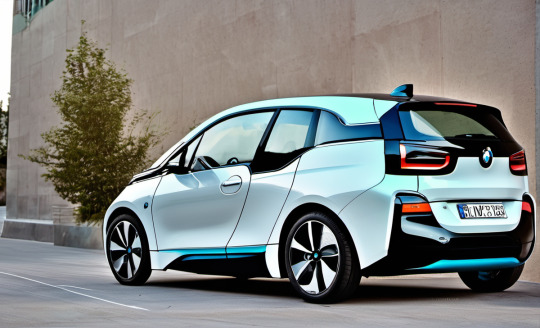
Beyond the Big Names:
The EV landscape extends far beyond these established players. Startups like Lucid Motors, Rivian, and Fisker are shaking things up with their high-performance EVs and cutting-edge technology. Additionally, regional players like Nissan (Leaf), Renault (Zoe), and Volvo (XC40 Recharge) are significant contributors to the global EV market.
Exploring the Future:
The electric car revolution is still in its early stages, and the manufacturers are constantly pushing the boundaries. Future developments to watch include:Battery breakthroughs: Longer range, faster charging, and more sustainable battery production are key areas of focus. Autonomous driving: Integrating advanced driver-assistance features and even fully autonomous driving capabilities are on the horizon. Greater affordability: Making EVs accessible to a wider audience through cost reductions and innovative financing options is crucial for widespread adoption.
By understanding the major electric car manufacturers and their unique offerings, we can better grasp the dynamics of this rapidly evolving industry. As technology advances and competition intensifies, the future of electric cars looks bright, promising cleaner, more sustainable transportation for all.
#electric car#electric car blogs#Exploring the Future#Major Electric Car Manufacturers#Electric Car Manufacturers#manufacturer#electric car information#global electric car market#Electric vehicle#electric vehicle blog#Battery electric vehicle#transportation#electric cars#best electric cars
1 note
·
View note
Text
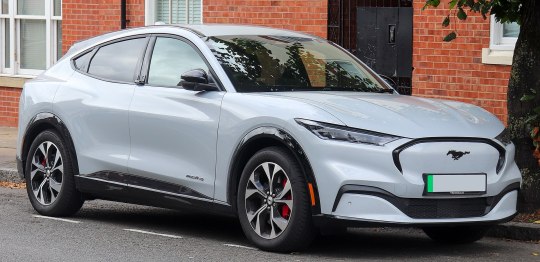
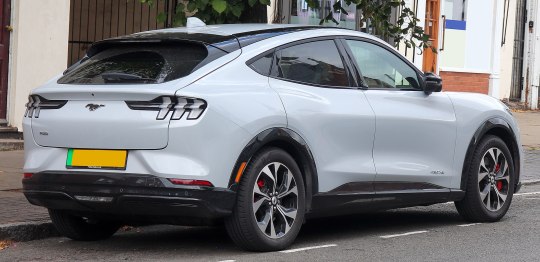
in what fucking universe is this lozenge a mustang. you can't just stick the little pony and the taillights on a random nondescript 2020s oversized hatchback-suv-thing and earnestly tell us that this has any meaningful design continuity with her
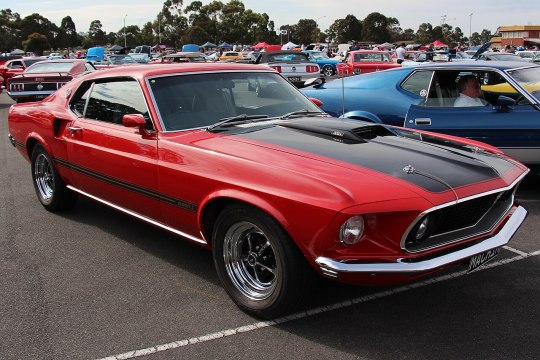
#I saw one of these stupid things while I was out this afternoon and it made me want to retch#when did auto manufacturers decide that every electric car had to be a shitty suv thing#in its indecision this form factor shows exactly zero love to the sports car the hatchback or the light truck
9 notes
·
View notes
Text
youtube
As sales fall in China VW group forced to shut down 2 more factories
P.S. There are no surprises here for those who follow the latest trends in electric car production technology and market: If the MEB platform is designed to make unions, politicians and diesel car dealers happy with badly overpriced compliance EVs, then don't be surprised to see VW suffer a fiasco in the Chinese electric car market and subsequently in all other markets.
At least since 2017, it has been known what needs to be done to build a long-range electric car suitable for the mass market at a reasonable price, but the VW management chose a different path... talking a lot, bribing politicians and the media with stories about how difficult and impossible it is to quickly organize mass market electric car production...
#Germany#VW#Volkswagen#ev manufacturing#competition#electric car#electric vehicle#demise of legacy automakers#Youtube
2 notes
·
View notes
Text
Top 5 Automotive Companies and How Metalman Auto Ltd. Supports Them
The automotive industry is dominated by several key players that lead the market in terms of innovation, production, and market share. The top five automotive companies globally are typically considered to be Toyota, Volkswagen Group, Daimler AG (Mercedes-Benz), Ford Motor Company, and General Motors (GM).

How Metalman Auto Ltd. Supports These Automotive Giants
As a leading supplier of high-quality automotive components, Metalman Auto Ltd. is well-positioned to support these top automotive companies. Our expertise in metal fabrication and assembly allows us to provide critical components that meet the specific needs of these manufacturers.
Our Value Proposition:
High-Precision Components: We provide parts that are essential for the safety and performance of vehicles, adhering to the exact specifications required by these top manufacturers.
Collaborative Approach: We work closely with OEMs to understand their needs and provide innovative solutions that enhance vehicle performance and safety.
Sustainable Manufacturing: Our commitment to sustainable practices ensures we contribute positively to the automotive industry’s environmental goals.
By partnering with Metalman Auto, these top automotive companies can enhance their supply chain efficiency and maintain their competitive edge in the global market.
#EV components supplier#Electric car parts manufacturer#Battery components supplier for EVs#Electric vehicle drivetrain parts supplier#EV charging components manufacturer#Electric motor parts supplier#EV battery management system supplier#Electric scooter parts manufacturer#general motors#vintage automobiles#chevrolet#Volkswagen Group#automotive industry#automotive#automotive components#metal fabrication#oems#oemparts#oem manufacturing#oem#metal parts supplier#India automotive components manufacturer#Automobile parts production in India#OEM parts manufacturing in India#Indian automotive parts supplier#Vehicle parts manufacturing industry in India#Made in India automotive components#Indian car parts production#India-based automotive parts manufacturer"
2 notes
·
View notes
Text
What Percentage of Cars Sold in 2023 Were Electric?
The automotive industry has been rapidly shifting towards electric vehicles (EVs), driven by increasing environmental concerns, technological advancements, and government incentives. The year 2023 marked a significant milestone in this transition. This transition has raised the question: What Percentage of Cars Sold in 2023 Were Electric? Let’s dive into the data to understand the impact and…

View On WordPress
#automotive industry#automotive trends#battery production#battery technology#car manufacturing#car market trends#car sales 2023#charging infrastructure#charging networks#China EV market#Clean Energy#cobalt#consumer acceptance#electric cars#electric mobility#electric vehicles#environmental awareness#Environmental Impact#Europe EV market#EV adoption#EV incentives#EV maintenance#EV technology#EVs#Ford#future of cars#General Motors#global sales#Government Incentives#green alternatives
2 notes
·
View notes
Text
Electric Vehicle Plastics Market: An In-Depth Exploration and its Contribution to a Circular Automotive Industry
The global electric vehicle plastics market size was estimated at USD 13.33 billion in 2030 and is anticipated to grow at a compound annual growth rate (CAGR) of 28.0% from 2024 to 2030. The industry is projected to witness significant growth in terms of consumption, on account of high application scope and increasing demand from the growing population. The Polypropylene (PP) resin demand in the Asia Pacific region is estimated to grow at the fastest CAGR over the forecast period. Strong government support & initiatives regarding emissions and increasing investment by manufacturers are propelling the growth of the region.
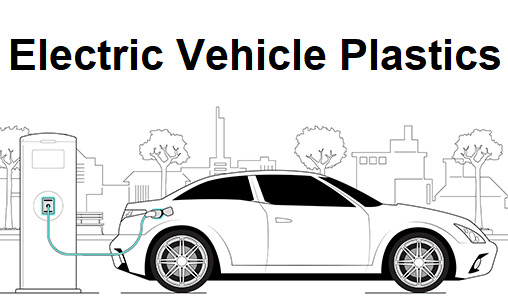
Electric Vehicle Plastics Market Report Highlights
The Asia Pacific region is estimated to grow at the fastest CAGR from 2022 to 2030. Increasing demand from the growing population coupled with environmental concerns among others are anticipated to drive market growth in the region
The battery segment is anticipated to register the fastest CAGR from 2022 to 2030. Batteries are one of the significant components of an EV and, in comparison to combustion engines, battery vehicles do not produce any emissions and are eco-friendly. The growing demand for EVs has promising growth for EV batteries
The exterior application segment accounted for the largest revenue share in 2021 and is estimated to continue its dominance over the forecast period due to the high demand in aesthetics
The BEV vehicle type segment led the industry in 2021 and it is anticipated to continue growing over the forecast period as PHEVs have higher maintenance costs than BEVs
For More Details or Sample Copy please visit link @: Electric Vehicle Plastics Market Report
Furthermore, EVs are efficient and require less maintenance as compared with traditional vehicles. These factors are expected to boost the demand for EVs, which is expected to drive the demand for plastics over the forecast period. Increasing utilization of plastics in EVs is anticipated to boost industry growth positively over the forecast period. Plastics have proven to perform well under harsh conditions through their resistance to shock, moisture, oxidation, and further maintaining their chemical and mechanical properties. Plastics will be crucial material for manufacturing lightweight and energy-efficient EVs. Based on resin type, PP is expected to witness major demand during the projected years.
Polypropylene is used in many components of the vehicle including bumpers, carpet fibers, cable insulation, and others. Properties, such as good heat, chemical & fatigue resistance, and others, are anticipated to drive the demand for PP in the industry. Major manufacturers are adopting expansion strategies, such as new product development, production facility expansions, mergers & acquisitions, and joint ventures. For instance, in October 2021, DuPont launched a new extension of its existing Zytel HTN range, named as Zytel 500 series. These products are developed to provide enhanced retention properties in e-mobility oils, electrically friendly characteristics, and a high Comparative Tracking Index (CTI).
EVPlastics #ElectricVehicles #SustainableDriving #EcoFriendlyCars #ElectricVehicleTech #CleanTransportation #GreenMobility #EVInnovation #PlasticsInEVs #FutureOfTransport #SustainableMaterials #EcoAutoDesign #EVManufacturing #PolymerInnovation #ZeroEmissionVehicles #GreenTechAuto #CleantechPlastics #EVDesign #EcoFriendlyPlastics #CircularAutoEconomy
#EV Plastics#Electric Vehicles#Sustainable Driving#Eco-Friendly Cars#Electric Vehicle Tech#Clean Transportation#Green Mobility#EV Innovation#Plastics In EVs#Future Of Transport#Sustainable Materials#Eco Auto Design#EV Manufacturing#Polymer Innovation#Zero Emission Vehicles#Green Tech Auto#Cleantech Plastics#EV Design#Eco-Friendly Plastics#Circular Auto Economy
2 notes
·
View notes
Text
Taps the sign: "the solution to America's car problem isn't giving everyone electric cars, the solution to America's car problem is Banning The Fucking Cars and switching to more sustainable modes of transportation in cities and countrysides that are built for humans and not cars"
#a chardy original#ppl forget that electric cars are still fucking Enormously resource-intensive to manufacture. arguably more so than fossil fuel cars#yes i had a conversation about EV cars today that left me frustrated how could u tell
2 notes
·
View notes
Text
Every product must be taken seriously.🥳🥳
From production to packaging to transportation, although all these are invisible, we take it seriously at every step.✊✊✊

2 notes
·
View notes
Text
/PRNewswire/ -- Electric Motors Market in terms of revenue was estimated to be worth $152.2 billion in 2024 and is poised to reach $206.4 billion by 2029, growing at a CAGR of 6.3% from 2024 to 2029 according to a new report by MarketsandMarkets™. Electric Motors Market is driven mainly by Increasing demand for HVAC systems among residential, commercial, and industrial end-users, growing demand for electric motors in manufacturing industries, and rising demand for energy-efficient motors.
#electric mobility#electric motors#electric vehicles#electric cars#electric motor market#electric motor#electric motors market#energy#energia#power generation#utilities#power#utility#hvac services#hvac contractors#hvac repair#hvac installation#hvacparts#hvac contractor#hvac maintenance#hvac#hvac systems#HVAC#residential#commercial#energy industry#industrial#industrialization#manufacturing#energy efficiency
0 notes
Text
Setting Up a Electric Car Manufacturing Plant: Report 2024
IMARC Group’s report titled “Electric Car Manufacturing Plant Project Report 2024: Industry Trends, Plant Setup, Machinery, Raw Materials, Investment Opportunities, Cost and Revenue” provides a comprehensive guide for establishing an electric car manufacturing plant.
0 notes
Text
According to Meticulous Research®, the electric car market is set to reach $5,634.6 Bn by 2031, with a CAGR of 29.2% from 2024 to 2031, and 140.7 Mn units in volume at a CAGR of 27.7%. Market growth is driven by supportive government policies, increased OEM investments, environmental concerns, and decreasing battery prices, though hindered by high costs and lack of charging infrastructure in developing countries. Opportunities arise from the adoption of autonomous vehicles and focus on electric mobility in emerging economies, despite challenges like low cold-weather performance and range anxiety. Key trends include investments in R&D for smart and solar-powered charging systems. The market is segmented by propulsion type, power output, and end use, with analysis at regional and country levels.
0 notes
Text
The Future of Electric Vehicle Charging Solutions
Electric vehicles (EVs) are transforming the automotive landscape, offering a sustainable and efficient alternative to traditional gasoline-powered cars. As the adoption of electric vehicles continues to grow, so does the need for reliable and efficient charging solutions. EV charging companies are at the forefront of this revolution, providing a range of options to meet the diverse needs of electric vehicle charging solutions in bangalore. In this article, we will explore various EV charging solutions, with a focus on EV fast chargers, and highlight some leading companies in the industry.
Understanding EV Chargers for Cars
EV chargers for cars come in several types, each designed to cater to different charging needs and scenarios. The primary categories include Level 1, Level 2, and DC fast chargers. Level 1 chargers use a standard household outlet and are best suited for overnight charging at home. Level 2 chargers, which require a 240-volt outlet, offer faster charging speeds and are commonly found in residential, commercial, and public settings. However, for those who need to charge their vehicles quickly, EV fast chargers are the ideal solution.
The Role of EV Fast Chargers
EV fast chargers, also known as DC fast chargers, significantly reduce charging time by delivering direct current (DC) electricity directly to the vehicle's battery. These chargers can typically recharge an EV battery to 80% capacity in just 20-30 minutes, making them perfect for long-distance travel and quick stops. The rapid charging capability of EV fast chargers in Mumbai addresses one of the main concerns of potential EV buyers: charging time.
Leading EV Charging Companies
Several companies are leading the charge in developing and deploying EV charging infrastructure. These EV charging companies are instrumental in expanding the network of chargers and making EV ownership more convenient. Some of the prominent players in the industry include:
Tesla: Known for its Supercharger network, Tesla has established one of the most extensive and reliable fast-charging networks globally. Tesla Superchargers are strategically located along major highways, allowing Tesla owners to travel long distances with minimal charging stops.
ChargePoint: ChargePoint operates the largest network of independently owned EV charging stations in the world. The company offers a variety of charging solutions, including Level 2 chargers and DC fast chargers, catering to both residential and commercial needs.
Electrify America: A subsidiary of Volkswagen Group of America, Electrify America is focused on building a comprehensive network of ultra-fast charging stations across the United States. Their stations are equipped with high-power DC fast chargers that can deliver up to 350 kW, significantly reducing charging times for compatible vehicles.
EVgo: EVgo is the nation’s largest public fast-charging network. They provide a reliable and convenient charging experience with over 800 fast-charging locations in 34 states. EVgo's chargers are compatible with all major EV models, ensuring accessibility for a wide range of EV drivers.
Innovations in EV Charging Technology
The EV charging industry is continually evolving, with advancements aimed at making charging faster, more efficient, and more accessible. Some of the latest innovations include:
Wireless Charging: Wireless or inductive charging technology allows EVs to charge without the need for physical connectors. This technology is still in the early stages but holds great promise for the future of EV charging.
Smart Charging Solutions: Smart chargers can communicate with the grid and manage energy consumption more efficiently. These chargers can optimize charging times based on electricity rates and grid demand, reducing costs for consumers and easing the load on the power grid.
Battery Swapping Stations: Some companies are exploring battery swapping as an alternative to traditional charging. This involves replacing the depleted battery with a fully charged one, significantly reducing downtime.
Conclusion
The advancement of EV charger manufacturing companies in Hyderabad for cars, particularly EV fast chargers, is crucial to the widespread adoption of electric vehicles. With leading EV charging companies continuously innovating and expanding their networks, the future of EV charging looks promising. These developments not only enhance the convenience of owning an EV but also contribute to a greener and more sustainable transportation ecosystem.
#electric vehicle charging solutions in bangalore#ev fast charger in bangalore#ev fast charger in NCR#electric vehicle charging solutions in mumbai#ev fast charger in mumbai#EV Chargers Wholesalers#ev charger manufacturing companies#ev charging companies in NCR#electric car chargers in hyderabad#ev charger manufacturing companies in hyderabad
0 notes
Text

Maybe many people don't know us yet, but today I really want to introduce us to friends all over the world: Hello everyone, I am Hulk Vehiclke, a manufacturer focused on providing you with high-quality electric vehicles. If you have any vehicle needs, you can send us an inquiry.
https://www.hulkvehicle.com/company-introduction.html
#sightseeing car#electric golf cart#sightseeing bus#shuttle bus#golf cart#hulkvehicle#sightseeing bus manufacturer#golf cart manufacturer#electric golf cart factory#shuttle bus supplier#electric shuttle bus supplier#electric sightseeing bus supplier#shuttle bus manufacturer
1 note
·
View note
Text
The Leapmotor T03 will compete with the Dacia Spring, a small car produced by Dongfeng, which was the tenth best-selling fully electric car in Europe last year.
3 notes
·
View notes
Text
Metalman Auto files draft papers with SEBI to raise funds via IPO
The IPO consists of a fresh issue of Rs 350 crore and an offer for sale of upto 12.64 million shares by its existing shareholders and promoters.
Metalman Auto Ltd has submitted a Draft Red Herring Prospectus (DRHP) to the Securities and Exchange Board of India (SEBI) to raise capital through an Initial Public Offering (IPO). The IPO includes a fresh issuance of shares worth Rs 350 crore and an offer for sale of up to 12.64 million shares by the company’s current shareholders and promoters.
The proceeds from the fresh issue will be allocated as follows: Rs 25 crore will be used to partially finance the capital expenditure for the procurement of plant and machinery at the Pithampur manufacturing unit 2. The company also plans to utilize Rs 240 crore to repay a portion of its existing debt. As of June 2024, Metalman Auto Ltd has a total debt of Rs 314.43 crore.
The firm operates nine manufacturing units across five states in India, strategically located near OEM customers to ensure efficient production and supply. Axis Capital, ICICI Securities, and Motilal Oswal Investment Advisors are the lead managers for this issue.
Metalman Auto Ltd is a leader in the metal fabrication, finishing, and assembly sector in India, specializing in the production of metal components for two-wheelers (including both electric and internal combustion engines), three-wheelers, passenger vehicles, commercial vehicles, agri-vehicles, and off-highway vehicles. Additionally, the company manufactures aesthetic components for white goods, such as panels for washing machines, and offers contract manufacturing services for two-wheeler electric vehicle (2W EV) OEMs.
#metalman auto#oem manufacturing#oemparts#electric vehicles#metal fabrication#fabricationservices#steel fabrication#supplier#manufacturer#stainless steel#transport technology#transport service#transport for london#vehicle transport#transportation#ipo news#ipo alert#markets#stocks#business standard#business magazines#High-Volume Automotive Parts Manufacturing#manufacturing#automotive parts#parts Manufacturin#automotive industry#automotive#car accessories
2 notes
·
View notes
Text
Is the Number of Petrol Cars Declining?
The automotive landscape is shifting rapidly, with electric vehicles (EVs) and hybrid technologies gaining prominence. This transition raises a crucial question: is the number of petrol cars declining?
Statistics and Trends:
Global petrol car sales dropped by 8% in 2023 compared to the previous year.
Electric vehicle sales surged by 40% in the same period, reaching a total of 10 million units…

View On WordPress
#auto industry#auto industry shift#auto trends#Automotive Innovation#automotive market#autonomous driving#battery technology#car manufacturing#car sales#Car technology#car trends#carbon emissions#charging infrastructure#Clean Energy#climate change#consumer habits#Eco-Friendly Cars#electric car growth#electric mobility#electric vehicles#emissions#Environmental Impact#EV incentives#EV sales#fossil fuels#future of cars#global trends#government policies#green technology#green transport
0 notes